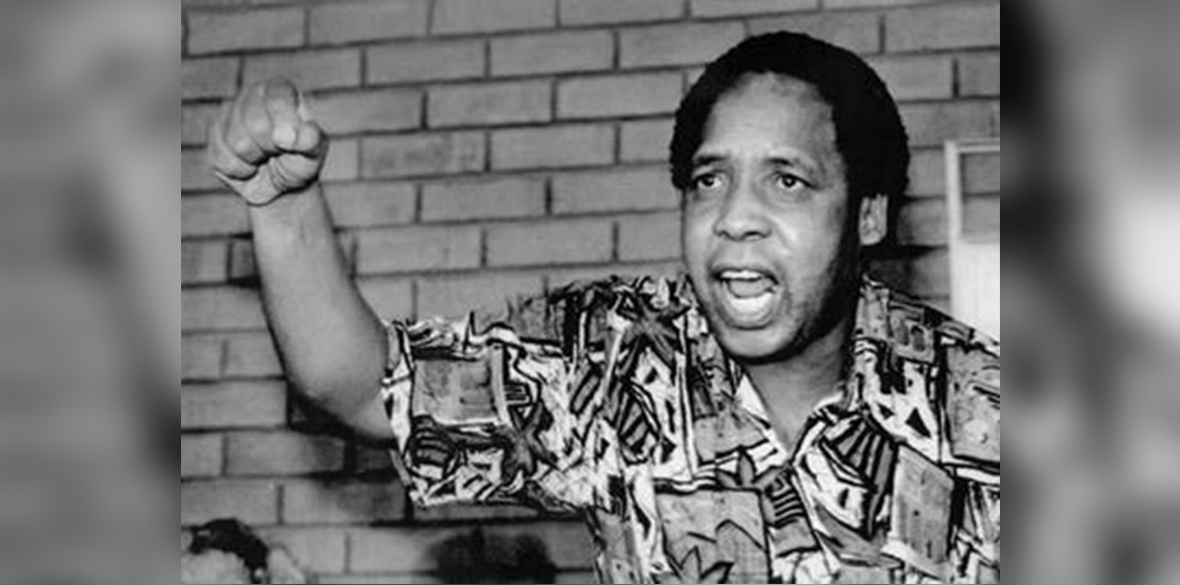This is the last article you can read this month
You can read more article this month
You can read more articles this month
Sorry your limit is up for this month
Reset on:
Please help support the Morning Star by subscribing here
WREATHS are to be laid at a ceremony tomorrow to mark the 28th anniversary of the murder of South African Communist Party (SACP) general secretary Chris Hani.
Current SACP general secretary Blade Nzimande, South African President Cyril Ramaphosa and Congress of South African Trade Unions (Cosatu) deputy president Louise Thipe will pay tribute to Mr Hani at the memorial event at Thomas Titus Nkobi Memorial Park, east of Johannesburg.
Communists continue to demand the truth about Mr Hani’s murder on April 10 1993, insisting that those convicted of the crime, former South African Conservative Party MP Clive Derby-Lewis and Janusz Walus, were not the only people involved in the assassination.
“Th gun used to assassinate Hani in cold blood was taken from a military armoury,” an SACP statement said. “Who took it and who else was involved in transmitting the murder weapon from one point to the next until it was used by the convicted assassins is part of the undisclosed truth. Justice is yet to run its course, therefore.”
Mr Hani joined the South African liberation struggle as a student and youth activist and dedicated his entire life to the fight for democracy and social emancipation.
He played a leading role in uMkhonto weSizwe (MK), the joint ANC and SACP military wing that combatted the apartheid regime.
At the time of his death, Mr Hani was the SACP general secretary and a member of the ANC national executive committee.
Mr Derby-Lewis, who provided the gun that Mr Walus used to kill Mr Hani, admitted to the Truth and Reconciliation Commission that the assassination was intended to provoke a racial civil war.
The SACP warned that the killers had almost succeeded. Riots broke out in Cape Town, Durban and Port Elizabeth following the murder, with seven people killed, three of whom were shot dead by the police.
Some six million black workers are believed to have taken part in a one-day general strike, which paved the way for South Africa’s first democratic election in April 1994.
Mr Walus, a Pole who had been granted South African citizenship, admitted being motivated by anti-communism.
He is revered by Polish fascists and far-right football supporters, who deem him a political prisoner.
His latest application for parole was denied last year. Mr Derby-Lewis died in 2016, a year after his release on health grounds.











